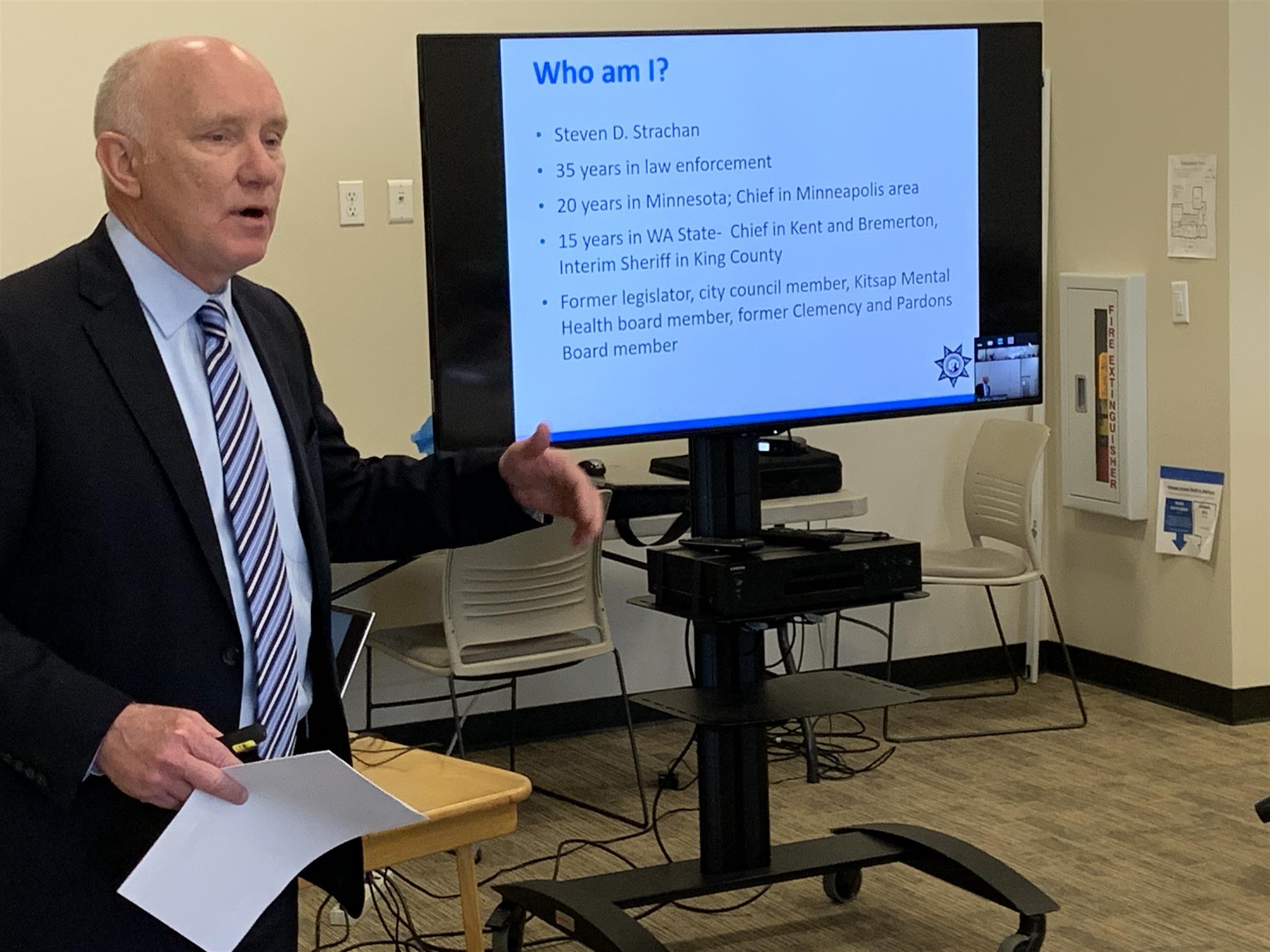Sobering. The presentation Apr 27 to Kingston North Kitsap Rotarians at their noon meeting. The speaker was Steven Strachan, Executive Director of Washington Association of Sheriffs and Police Chiefs. He spoke about the role of law enforcement in the state, in the middle of four compass points: service and protection, criminal enforcement, addiction, and mental health.
As a veteran of 35-years in law enforcement, and an elected representative in city and state government, Strachan has the bona fides to speak on the subject on the minds of many: how to work our way out of the mess that is drug addiction, mental health behavior, criminal behavior, and lack of property and personal safety of area residents.

Strachan spoke to the demand for police reform, combined with a political atmosphere that does not reward compromise or thoughtful dialogue. The big question, he said, is can we balance reform changes with respect for victims?
As a result of state legislative attempts at law enforcement reform in 2021, laws were passed that left enforcement agencies hands tied, because of important questions of what they could and could not do, in enforcement situations. As a result they backed off, criminals noticed, and personal and property crime spiked. Kitsap auto theft has doubled, as has that in the state. Homicides are up in King County 80%; 46% statewide. The 2022 legislature added clarity to its 2021 law, with bills to: authorize the use of less lethal munitions, clarify police use of force in civil and community caretaking situations, and define use of force and provide for investigative detentions. Unfortunately, according Strachan's website, the 2022 legislature failed to pass a bill to change restrictions on pursuits to reasonable suspicion, rather than probable cause, of certain violent crimes and sex offenses.
Law enforcement staffing has gotten worse. Washington State has the lowest police staffing in the country. And attempts to improve have gone nowhere. One of the root causes of recruiting difficulty is the lack of a more wholistic approach when answering 911 calls. Many do not require law enforcement as much as they require behavioral health professionals, yet there is a lack of the latter to respond on calls. Police and sheriffs personnel are frustrated because they cannot help victims, don't have the tools or resources to get people healthy and off the street, and they can't detain or jail persons who victimize others.
Strachan said, "we need way more behavioral health infrastructure." When asked if that was, perhaps, the first avenue of attack out of the mess, he said he thought it was. But, he fears it is going to get worse before it gets better.